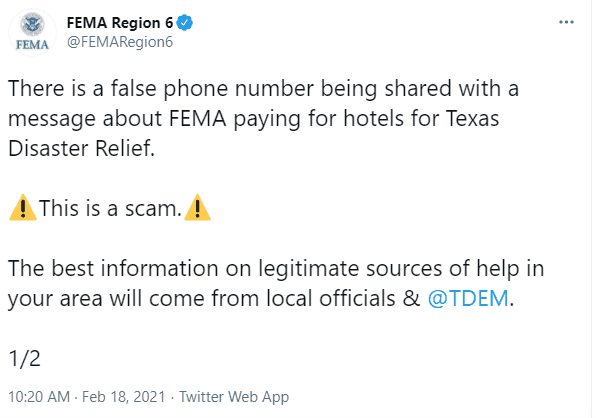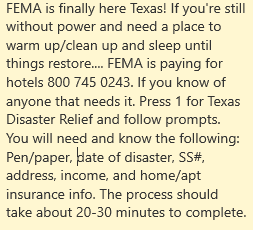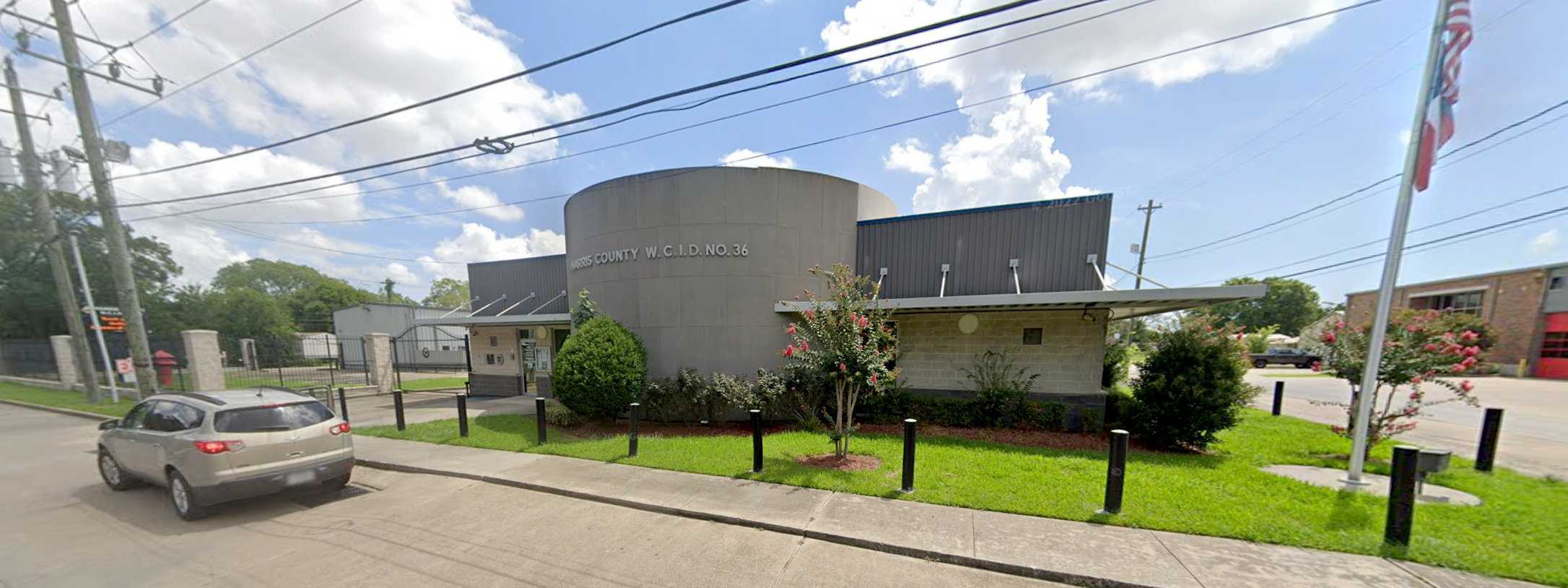Article by Harris County Universal Services Cybersecurity Division
FEMA warns of scammers using fake phone numbers for disaster relief.
Key Points
- Scammers are taking advantage of people post-storm.
- Beware especially of people reaching out claiming to be FEMA or government entities.
- Beware of disaster-related insurance and charitable giving scams.
What Is Happening?
The Federal Emergency Management Agency (FEMA) reported yesterday that a fake phone number is being used to scam people looking for help due to the recent winter storms. This is primarily circulating on social media and the internet.

The text of the scam is below:

What can employees do?
The scam example above is not unique. After disasters, financially-motivated scammers often pose as government officials, insurance agents, and even charitable or non-profit organizations.
If you need help, the safest way to find information is to go to the official websites of local city or county government, such as Harris County's Ready Harris page or the Texas Department of Emergency Management page.
The Federal Communications Commission gives good advice for avoiding these scams.
Government or Insurance Scams
- Officials with government disaster assistance agencies do not call or text asking for financial account information.
- Anyone claiming to be a federal official who asks for money is an imposter.
- There is no fee required to apply for or get disaster assistance from FEMA or the Small Business Administration.
- Phone scams often use spoofing techniques to deliberately falsify the information transmitted to your caller ID display to disguise their identity or make the call appear to be official.
- If someone calls claiming to be a government official or insurance agent, hang up and call the number listed on that government agency's or the insurer's official website.
- Ask to see official identification for workers and agents who knock on your door. Remember they may not ask for or accept money.
Charitable Scams
- Donate to trusted, well-known charities.
- Verify all phone numbers for charities. If you need to contact a charity by phone, check the charity's official website to see if the number you have is legitimate. If you're using text-to-donate, check with the charity to ensure the number is legitimate before donating.
- Do not open suspicious emails. If you receive a suspicious email requesting donations or other assistance, do not click on any links or open any attachments. Scammers regularly use email for phishing attacks and to spread malware.
- Verify information in social media posts. Double-check any solicitation for charitable donations before you give. Crowd-funding websites often host individual requests for help but they are not always vetted by the site or other sources.
